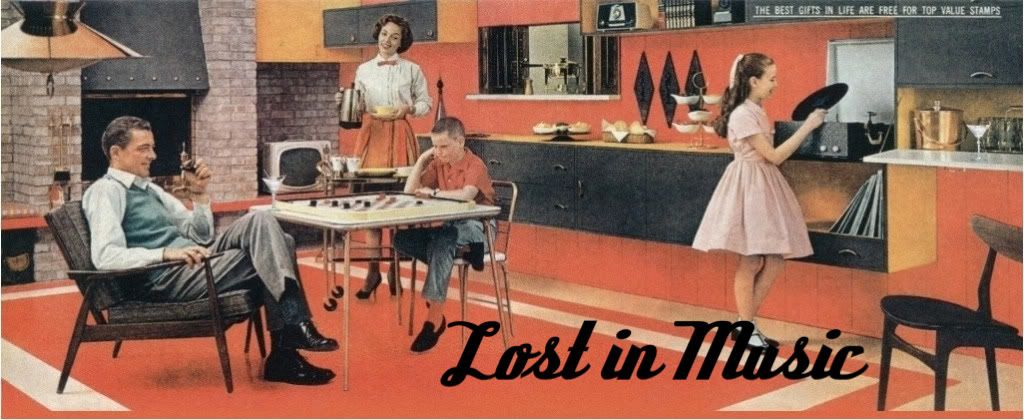This is a rough translation of the original interview by Luigi Milani and has not been authorised by the author or by the magazine Applicando, so don't copy or distribute it or I'll end up in jail or something...

This month Applicando crossed the channel - don't worry not swimming - to meet a real legend of 80's electronic rock: the elusive Dennis Leigh, alias John Foxx. After going through various important bands of the
Applicando: It's an honour to talk to you….etc etc. Many here in
Foxx: Yes, it also depends on my own personal inadequacy: I can't stand too much attention. I need privacy otherwise I can't work. Being anonymous is essential otherwise it's impossible to look around and watch what's going on. Periodically I also need to withdraw myself completely in search of refuge.
A: An inevitable question: you left Ultravox immediately before they became successful. Any regrets?
F: No, we were all very happy about how things went, they had their hits I had my synths.
A: You very clearly explained to many artists about how to use electronics. Depeche Mode for example. What do you think about the contemporary music scene? Are there any artists you find really interesting?
F: Of course, there are many new names such as Lowfish, Pram, lemon Jelly, Klaxons, Ladytron, the Knife. Plus of course the usual survivors Harold Budd, Ruben Garcia, Robin Guthrie, Steve Jansen, and that little devil Iggy Pop who animated electronic music from Neu! onwards without playing electronic music.
A: Crash and Burn is a very innovative album. How did your collaboration with L.Gordon begin?
F: I went to an event in a country house. there was a room full of lights, smoke and non stop music. After four hours the smoke faded and Louis appeared. he had been playing everything with a synth he had just bought, a broken drum machine and a guitar. He told me he’d bought my records as a youngster. So we went to
A: Tiny Colour Movies is a very high quality product which seems to testify your wish to push into new artistic territories. Generally speaking what kind of relation is there between your music and visual art?
F: The two fields work together, and their meeting means that one feeds off the other: visual images assume the form of songs and vice versa. I grew up watching films in a small local cinema and that's where I get my visual language roots: as a child I didn't understand very much of what I saw, everything seemed quite surreal. Today every time I write a song or piece of music it really is the soundtrack to some film I have inside, generated form the fragments of those experiences.
A: After the Cathedral Oceans DVD do you think you will produce other multimedia projects?
F: We are working on a film based on Tiny Colour Movies and editing some old Super 8 films: they show friends who walk around the streets of
A: You are not just a established musician but also a talented graphic designer. Would you like to tell us something about this equally interesting side of your artistic life?
F: I began with graphic design as a teenager at art school and quite simply I have continued with it. At one point I took a break from music and was dedicated completely to graphic design. I didn't want to use the name John Foxx, so I used another one; I wanted to prove to myself that my work could be valid in its own right. It seems that it went well and it is very gratifying to be able to move from one field to another successfully.
A: I imagine you use Mac for your graphic work?
F: of course, I use Mac for editing digitalised film and for creating images and music. I've always wanted a laboratory (workshop) I could carry around with me in a bag!
A: Which Mac model are you using at the moment and with which programs (applications)?
F: Mac Book Pro - the latest model - and Logic, Final Cut pro, iMovie HD, Photoshop. Plus a load of old analogue equipment and digitalised Super 8 films.
A. Concerning the musical field you were a pioneer in the use of synthesisers. How has the advent of computers influenced you in your approach to music?
F: I like the absolute control of digital and physiologically incorrectness of analogue. But the two things together become something very exciting. At the moment I am trying to make digital become 'incorrect'..
A: What's your view of selling music online?
F: It's simply another vehicle.
A: Do you think there is a way of escaping the serious crisis which has hit the record industry?
F: Everything is being redefined and rethought, and there is also a big delay. Apple really is dominating the market at the moment and I think that it could give out a more generous portion of the royalties they receive and maybe make sure these go direct to the artist. In the near future Apple will be managing films in the same way and therefore the same thing might happen in the world of film. Once the financial base has gone the whole sector will have to change shape in order to survive. More time might be necessary for the process to become totally functional. At the point everything becomes collateral. We live in exceptionally interesting times, to make and to listen to music is a biological necessity and it's diffusion is growing enormously ("exponentially").

1 comment:
Hooray! Publish and be damned! Heh!
Post a Comment